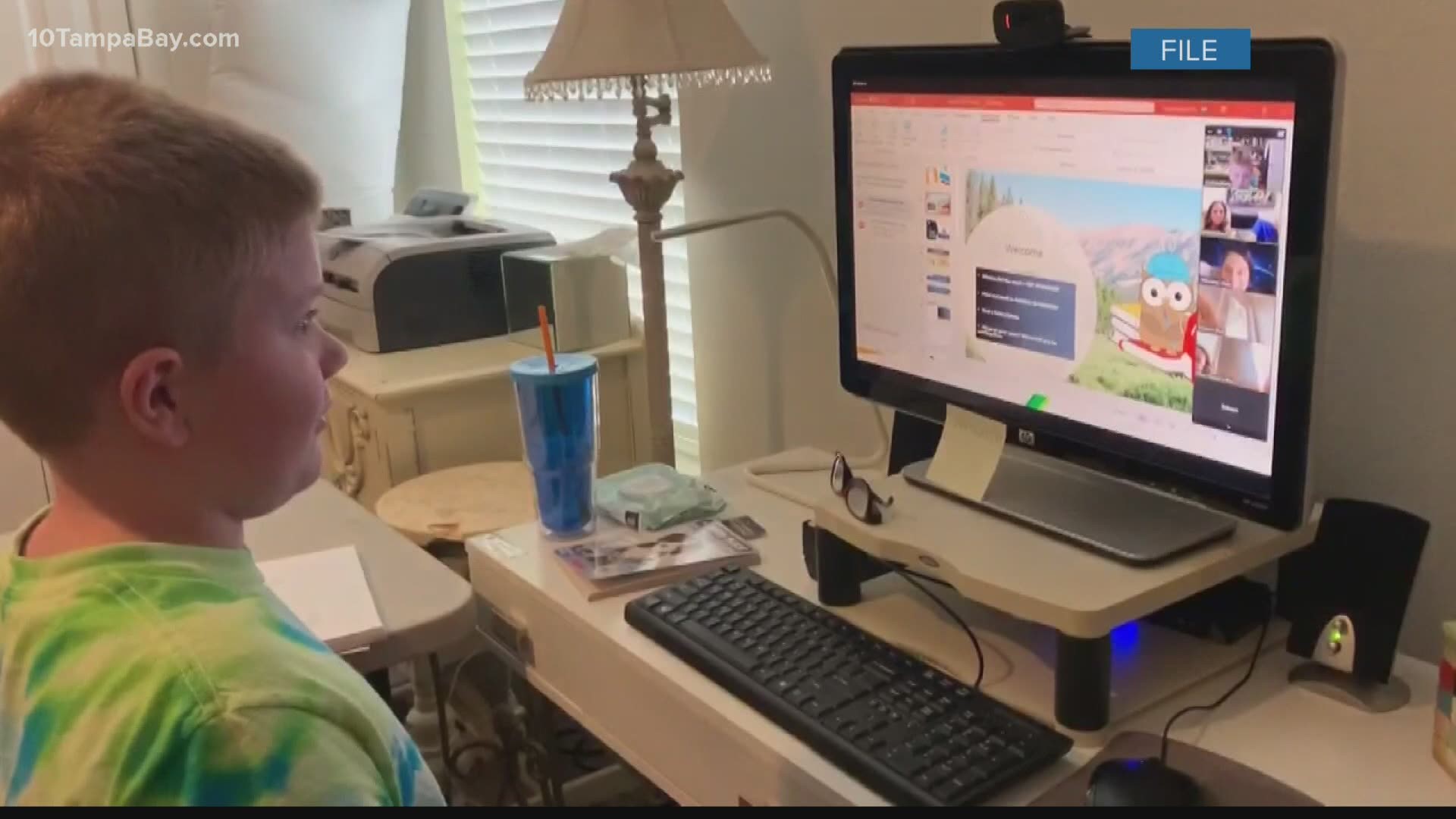TAMPA, Fla. — If your kids have done remote learning at any point during the last year, we don't have to tell you it's challenging.
But a new CDC study points to the fact that it also increases the risk for mental and physical health problems, not just for them, but for you too.
The study found kids aren't being as active and they're falling behind.
It found parents are having trouble sleeping, missing work, having concerns about job stability and finding it tough to find childcare.
So with some kids back from break this week and a few months left of the year, we wanted to give you a couple of things to try to make it easier on everyone in your house.
KathyDan Moore is a licensed marriage and family therapist.
She says talk to your kids about the fact this is stressful. Moore says kids tell her they don't feel comfortable talking about it because they're worried their parents are already stressed.
Also, create a space where your kids work best and structure around school time and getting active. She says some depression and anxiety can be helped out with physical activity.
And don't be afraid of hearing your kids say they're not ok.
"Don't wait until you see a glaring sign that something's wrong. Ask. Ask now. Take the time now to check in with your kid. See how they're doing. And really have an open discussion," says Moore.
She says that goes for you, too! If you have kids remote learning, assume you're over-stressed and make some time for self-care.
The CDC study found kids and parents may need extra support to reduce the impacts of this pandemic. Moore says there are mental health services available. Find a therapist. There are community mental health agencies and you can find many that will do telehealth.
Moore says have a conversation about suicide. She says in her practice this is what people are most afraid to talk about.
"The reality is, suicidal thoughts or even just ideas of not wanting to be here are really normal and I want everybody to feel much more comfortable having that conversation with their kids," Moore says.
"Once the kids say it out loud, it loses so much of its power. And once they know lots of kids are feeling that way, then immediately, the flood gates open and they feel like they can talk about it and we feel like we can get help and try to get some tools for kids so when they start getting these feelings it doesn't feel as desperate, it doesn't feel as hopeless and they know they have tools they can use to help them."
- Vaccine eligibility in Florida opens to people age 50 and older
- Vice President Kamala Harris visits Florida Monday
- 'We got a problem?' 2 teens charged with battery on Clearwater Beach lifeguard
- Women aren't protected by hate crime legislation in Florida
- US data finds AstraZeneca's COVID-19 vaccine effective for all ages
- What is 'cancel culture'? How the phrase got its start
►Breaking news and weather alerts: Get the free 10 Tampa Bay app
►Stay In the Know! Sign up now for the Brightside Blend Newsletter

